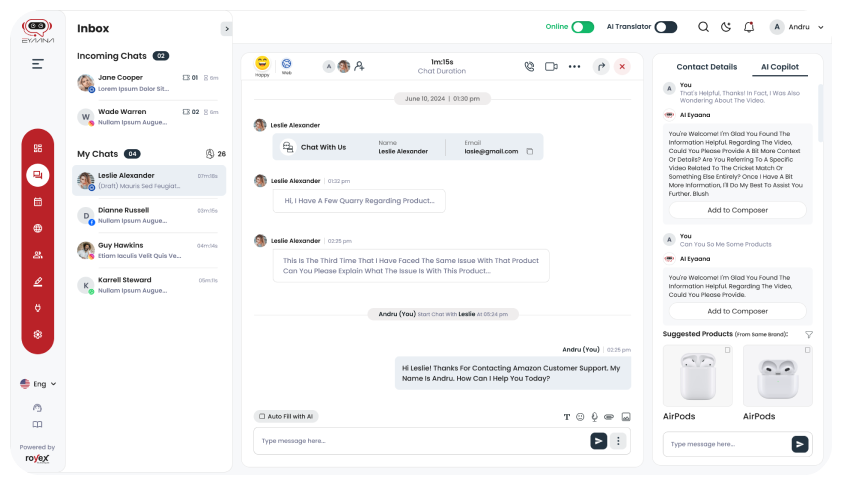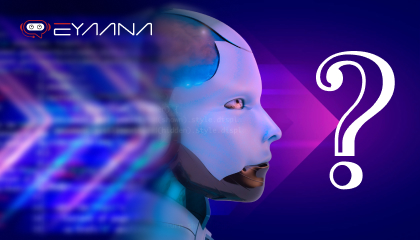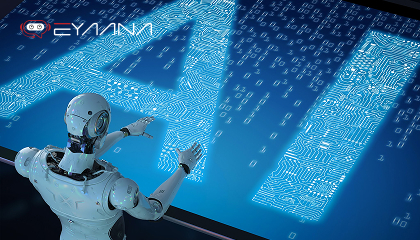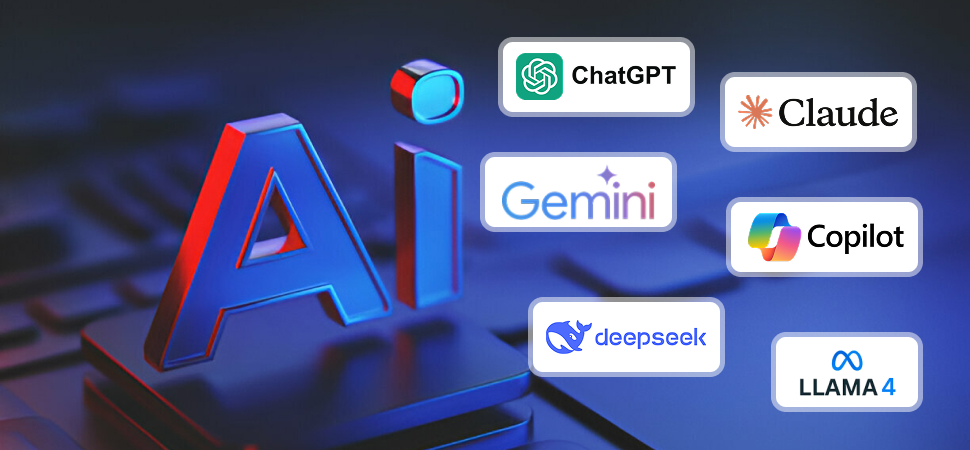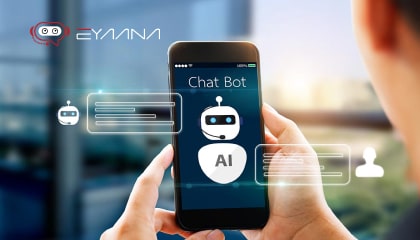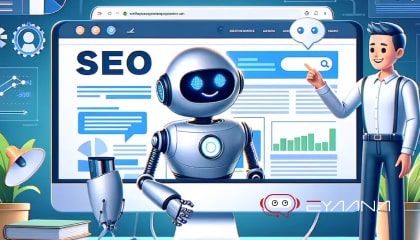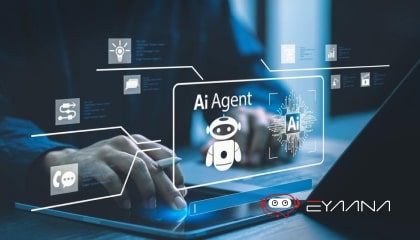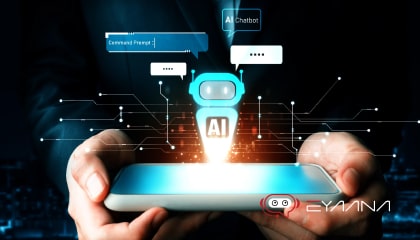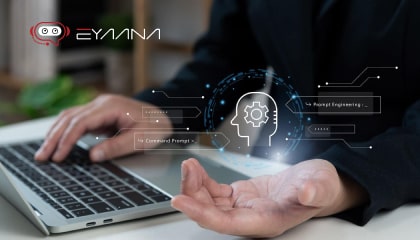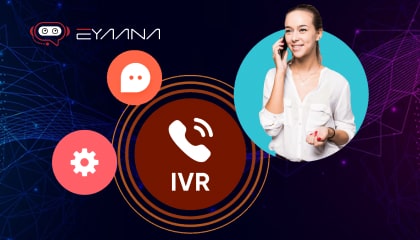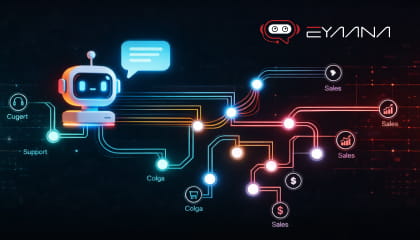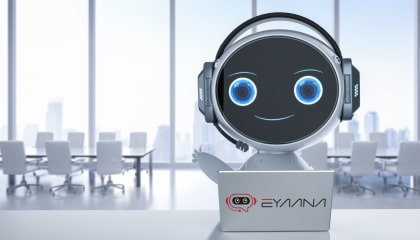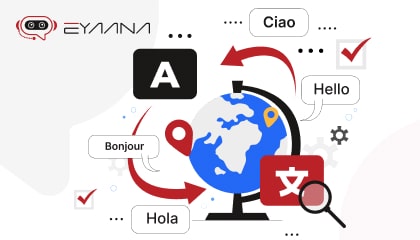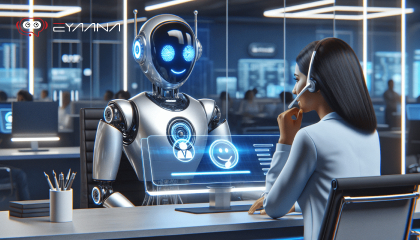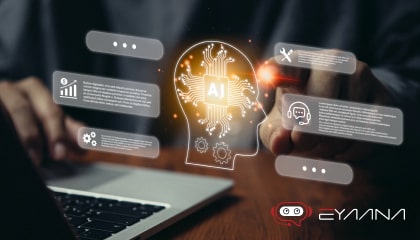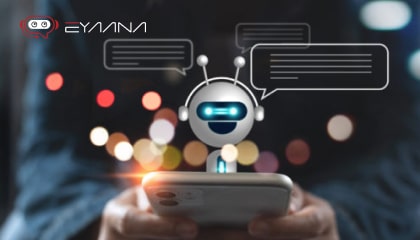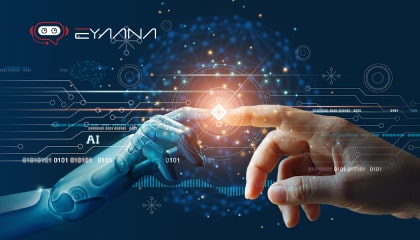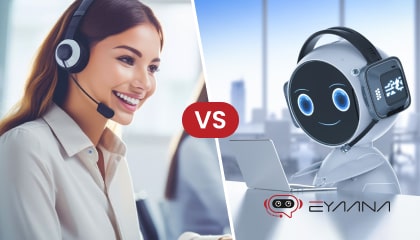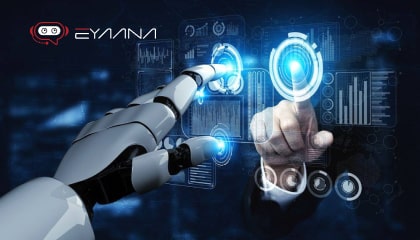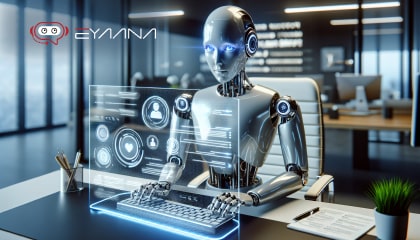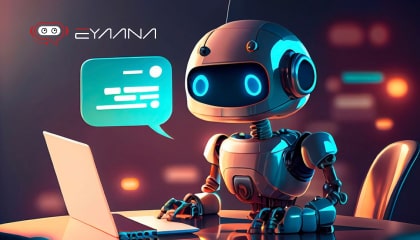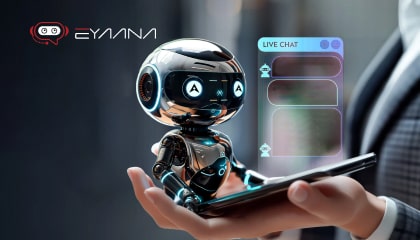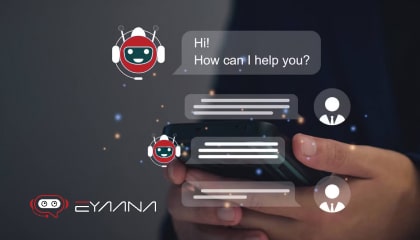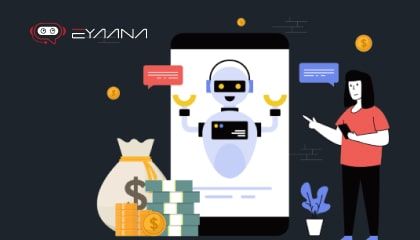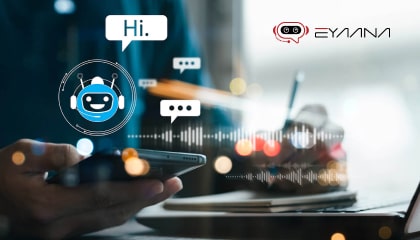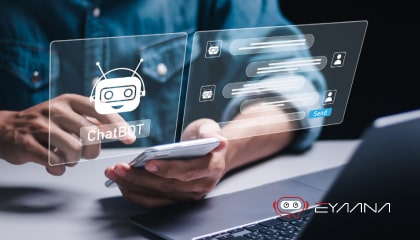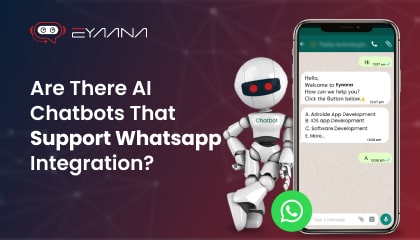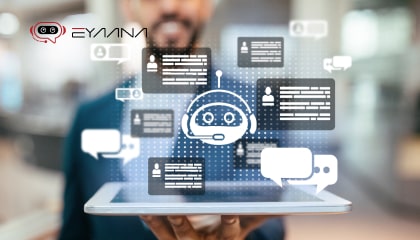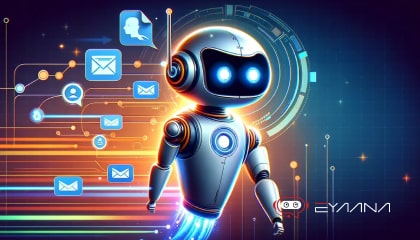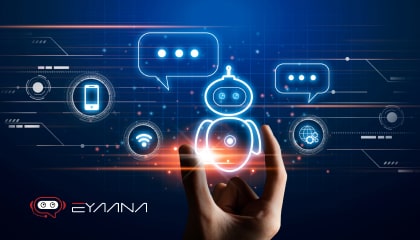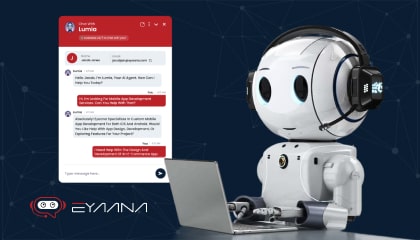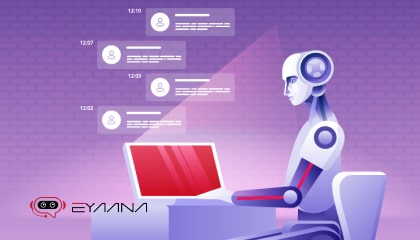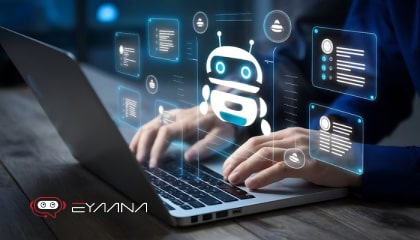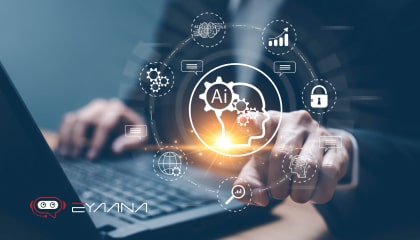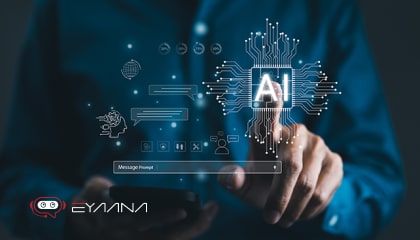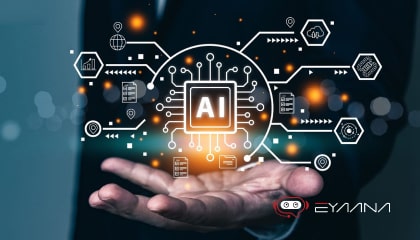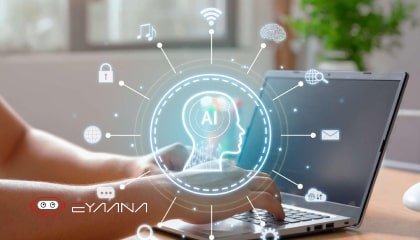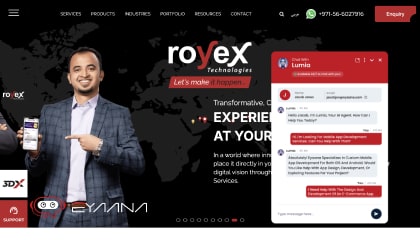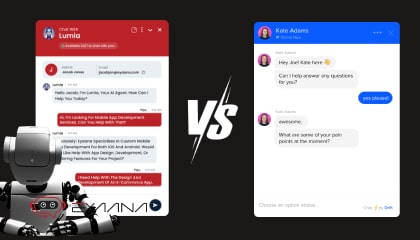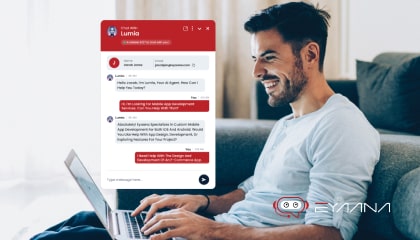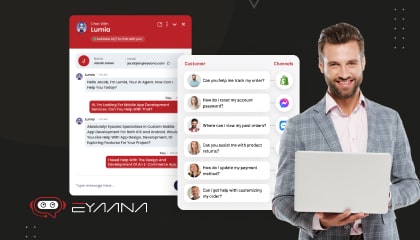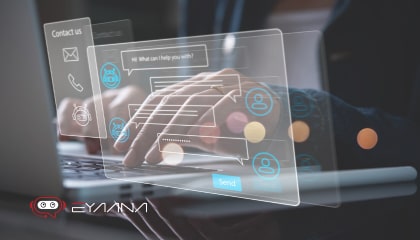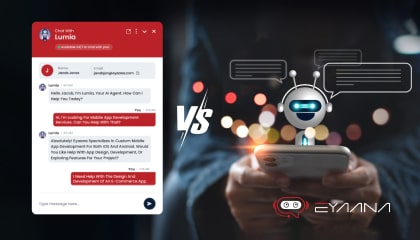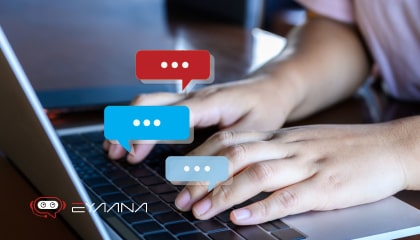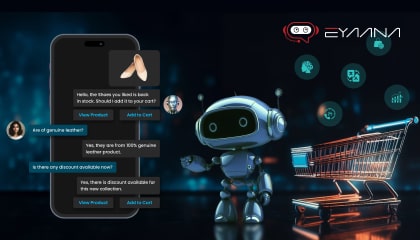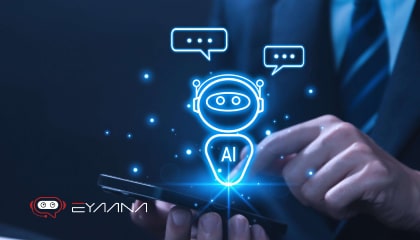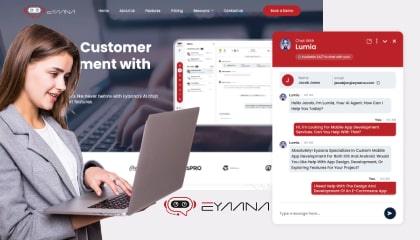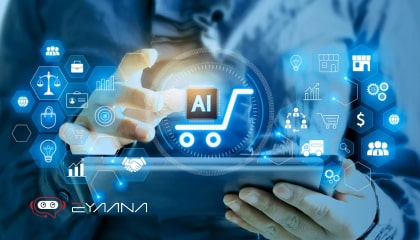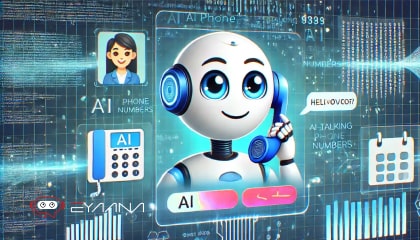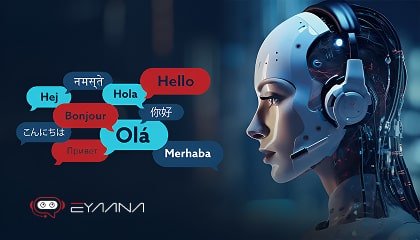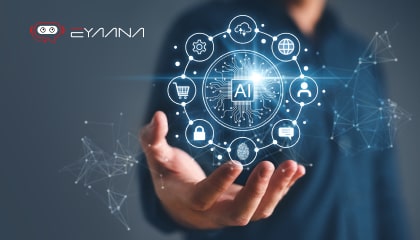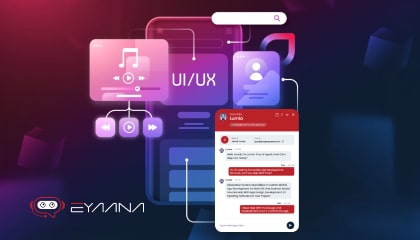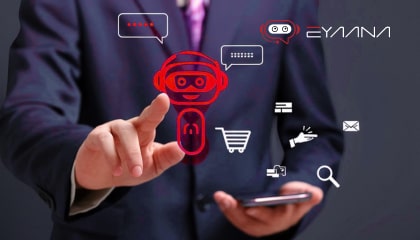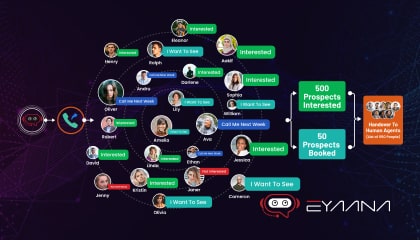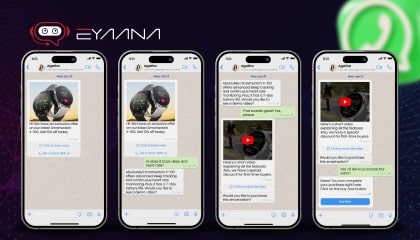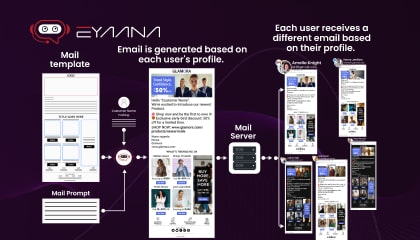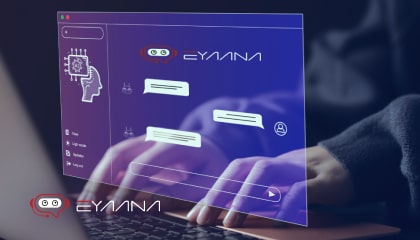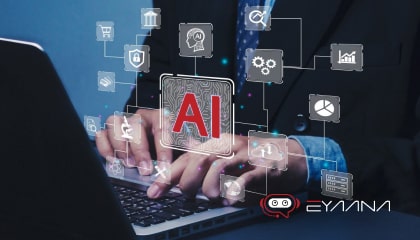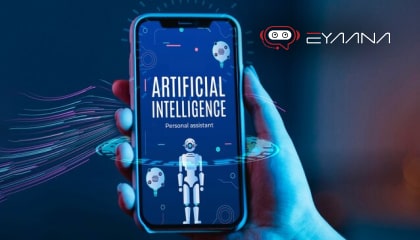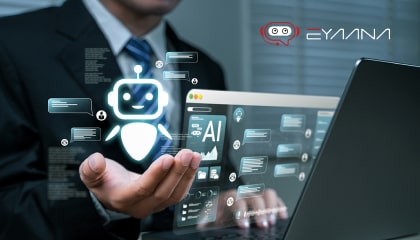Enquiry
Blog Details
What features should I look for in an AI chatbot?
In today’s digital age, AI chatbots are becoming essential tools for businesses and individuals looking to improve communication and offer better ai customer service. From helping answer customer questions to boosting sales or even assisting with everyday tasks, chatbots are more capable than ever. But with so many options, it can be tricky to figure out which one to choose. Each chatbot app has unique features, and understanding what’s important can make all the difference in finding one that meets your specific needs.
Whether you're a business looking to engage customers, a sales team aiming to convert leads, or just someone who wants an assistant, choosing the right chatbot means knowing what to look for. From being able to hold a natural conversation to integrating smoothly with other tools you use, the right features can make a chatbot far more effective. This guide breaks down the key features you should consider, so you can pick a chatbot that aligns perfectly with your goals and provides a great user experience.
1. Natural Language Processing (NLP)
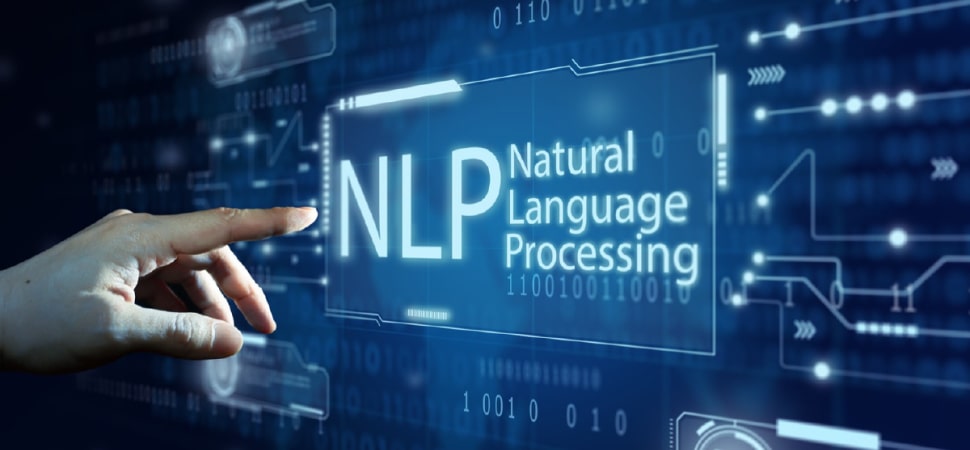
The most important feature of any AI chatbot is its ability to understand and respond to human language in a natural way. This is where Natural Language Processing (NLP) comes into play. NLP is a branch of artificial intelligence that helps the chatbot understand text or speech inputs and respond in a way that sounds human.
A good AI chatbot should be able to:
-
Recognize the intent behind a user’s message.
-
Understand different ways people might phrase the same question.
-
Respond in a conversational, easy-to-understand manner.
For example, if you ask a chatbot, "What’s the weather like today?" it should recognize that you’re asking for weather information, even if you phrase it in different ways like, “What’s the forecast today?” or “Will it rain today?”
2. Multi-Channel Support
Today’s customers interact with businesses across multiple platforms—websites, social media, messaging apps, and more. A good AI chatbot should be able to integrate with various channels like Facebook Messenger, WhatsApp, or your website’s chat window. This allows users to interact with the chatbot in the way that’s most convenient for them.
Multi-channel support ensures that you can reach customers wherever they are, providing a consistent experience no matter the platform. For businesses, this feature can streamline communication, making it easier to provide seamless support across different touchpoints.
3. 24/7 Availability
One of the primary reasons businesses implement chatbots is to offer round-the-clock service. A chatbot doesn’t sleep, meaning it can be available to assist users at any time of day, whether it's early morning or late at night.
This feature is particularly useful for businesses with global customers in different time zones, as well as for providing basic support when human agents are unavailable.
4. Personalization
AI chatbots with personalization capabilities can create a more tailored experience for users. This means the chatbot can remember previous interactions, offer recommendations based on past behaviors, and even use the user’s name to make the conversation feel more personal.
For instance, an AI chatbot used by an e-commerce site might recommend products based on the user's past purchases or browsing history. This personalized interaction not only enhances the customer experience but can also lead to increased sales and customer loyalty.
5. Quick Response Time
People today expect fast responses, especially when interacting online. An AI chatbot should be able to provide quick answers, handling multiple conversations at once without lag. This helps keep users engaged and satisfied, reducing the chance that they will leave the conversation in frustration.
If a chatbot takes too long to respond, users may lose interest or think that the system is malfunctioning. A fast, efficient response time ensures that the interaction feels smooth and professional.
6. AI Learning and Improvement
A good AI chatbot should be able to learn from its interactions with users and improve over time. This is where machine learning comes in. By analyzing past conversations, the chatbot can refine its ability to understand complex queries, offer better responses, and become more accurate at predicting what users need.
For example, if the chatbot misunderstands a question, it should be able to learn from the mistake and handle similar queries more effectively in the future. This feature is important for businesses looking for long-term value from their chatbot system.
7. Integration with Existing Systems

For businesses, an AI chatbot should be able to integrate with existing systems, such as your Customer Relationship Management (CRM) software, sales platforms, or helpdesk tools. This allows the chatbot to gather relevant customer data, track conversations, and provide more insightful responses.
For example, if a chatbot can access customer order history, it can provide more accurate answers related to shipping status, previous purchases, or order issues.
8. Escalation to Human Agents
While AI chatbots are great for answering common questions, there will always be situations where human intervention is needed. A good AI chatbot should know when to escalate an issue to a human agent. This ensures that customers don’t feel stuck when the chatbot can’t handle their request.
When escalating, the chatbot should seamlessly transfer the conversation to a human representative, ideally without the user needing to repeat themselves. This transition should be smooth and efficient to ensure a good customer experience.
9. Security and Privacy
In today’s digital landscape, data security and privacy are crucial. An AI chatbot should comply with industry standards for protecting user data and ensuring privacy. Look for chatbots that use encryption and are transparent about how your data is used.
If your chatbot handles sensitive information like payment details or personal information, it should have the necessary security measures in place to protect that data.
10. Analytics and Reporting
For businesses, understanding how a chatbot is performing is key to improving customer service and engagement. A chatbot that provides analytics and reporting features can help you track key metrics, such as:
-
Response times
-
Customer satisfaction
-
Common queries
-
Conversion rates
These insights can help you understand your customers better and make adjustments to your chatbot’s performance, improving its effectiveness over time.
11. Voice Capabilities
While many chatbots are text-based, some also offer voice capabilities. Voice-enabled chatbots allow users to speak to the bot, making the interaction feel more natural and efficient, especially for tasks like ordering food, checking bank balances, or asking for directions.
Voice features can be especially useful for users with accessibility needs or when they’re on the go.
12. Customizability
The ability to customize a chatbot’s appearance, tone, and language is important for maintaining brand consistency. Whether you want your chatbot to have a formal tone or a fun, friendly personality, customization features allow you to align the chatbot’s behavior with your brand's voice.
Additionally, the bot’s design and interface should be easy to use and visually appealing, enhancing the user experience.
Conclusion
Choosing the right AI chatbot depends on your specific needs and use cases. The features listed above are important considerations when evaluating different chatbot options. Whether you’re looking for a chatbot to help customers 24/7, provide personalized recommendations, or integrate seamlessly with your existing systems, understanding these key features will guide you toward the best solution.
A well-chosen AI chatbot can save time, increase efficiency, and improve customer satisfaction, making it a valuable tool for both businesses and individuals.
Why Eyaana Could Be the Right Choice for Your Business
If you’re looking for a powerful yet user-friendly AI chatbot app, Eyaana is worth considering. With Eyaana, businesses can seamlessly turn website traffic into live, engaging conversations, making it easier to convert leads into customers.
Eyaana is designed to be an AI-first customer support and sales solution, meaning it comes with powerful automation features, yet it’s easy to use even for non-technical teams. Its inbuilt CRM and helpdesk make customer management simple, while its AI-driven chat capabilities provide a smart, personalized experience for users.
Inbuilt CRM and Helpdesk: Eyaana comes with a built-in CRM and helpdesk, allowing businesses to manage customer data and support interactions in one place.
Flexible Pricing: Choose from Eyaana’s Lite and Pro packages starting from $99/month, with flexible, commitment-free tiers tailored to suit businesses of all sizes.
Multilingual Support: Engage a diverse audience with language options like Arabic, English, Hindi, and Urdu.
AI-First Design: Eyaana’s chatbot learns over time, enhancing customer interactions and turning site visits into conversations.
Scalability: Eyaana adapts to business growth, handling higher customer interactions with ease.
24/7 Support & Analytics: Real-time data and round-the-clock support help improve customer experiences.
Conclusion
Each of these chatbot solutions offers unique strengths and focuses, so selecting the right one will depend on a business’s specific needs, whether that’s enhancing customer support, boosting sales, or combining both in a seamless platform.
To explore how AI can enhance your business operations, sign up for free and get started with Eyaana today.
Do you need help?
We will provide detailed information about our services, types of work, and top projects. We will calculate the cost and prepare a commercial proposal.
